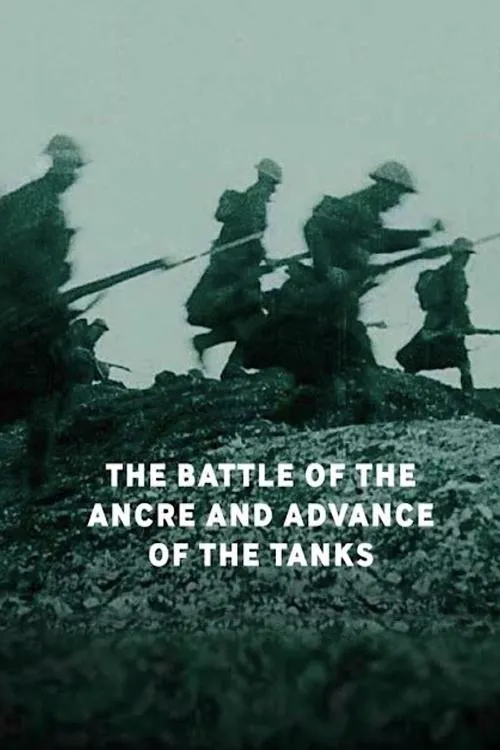The Battle of the Ancre and Advance of the Tanks

พล็อต
The Battle of the Ancre and Advance of the Tanks is an official film of the British Army's autumn campaign on the Somme, which was fought during World War I between 15th September to 18th November 1916. This documentary-style film captures the crucial moments of the campaign and marks one of the earliest attempts to use cinematic storytelling for propaganda and morale-boosting purposes. The Somme Offensive, which began in July 1916, was one of the bloodiest battles in military history. After months of relentless fighting and devastating losses, the British Army shifted its focus to the Ancre Valley, an area of high importance that overlooked the strategic village of Beaumont-Hamel. British forces aimed to retake control of this crucial region from the German troops, but the challenge lay ahead as the terrain was treacherous, and their enemy had well-fortified positions. The film opens with scenes of preparations, showcasing British soldiers preparing themselves for the impending battle. The scenes reveal that these soldiers had been fighting for months, enduring the grueling environment of trench warfare and facing relentless bombardments, disease and exhaustion. Despite their weary condition, they displayed resilience and determination, which became the foundation of the army's fighting spirit. The opening scenes are intercut with footage of war machines, most notably the introduction of the first tanks, which made their combat debut in September 1916. Initially, these machines were met with great skepticism and were not considered an essential component of the army's armory. However, as demonstrated in the film, they proved crucial in the breakthrough at the Ancre Valley and offered a glimpse into the dawn of mechanized warfare. The film shows key British Army leaders, including General Sir Douglas Haig, who oversaw the final stages of the Somme Offensive. General Robert Fanshawe, General Joseph Murray-Prior, and Major-General Charles Woollcombe are other prominent figures highlighted in the film as they played significant roles in shaping the strategy and implementation of the Ancre campaign. The British Army launched its assault on the Ancre Valley on the 1st of November 1916. Initially, the advance was hindered by the harsh weather conditions and the fortified positions of the enemy. However, with the tanks leading the charge, British forces made steady progress, pushing the Germans back and ultimately achieving their objective of taking control of the Ancre Valley. Throughout the film, the cameramen capture the raw essence of warfare by capturing scenes in the trenches, showing soldiers going into battle, the aftermath of battles, and the impact it had on those soldiers. These scenes serve to emphasize the horrors of war but also demonstrate the bravery, camaraderie, and resilience that defined the British soldiers of the Great War. The use of the cinematography and innovative storytelling of the time provides the viewer with an immersive experience of that era. By intermixing scenes of trench warfare, the use of early tanks and the impact on soldiers' morale, it conveys the significance of this lesser-known battle and serves as an important historical document that complements our understanding of the Battle of the Somme. By the completion of the Ancre campaign on 18th November 1916, British forces secured significant gains, pushing the Germans back and solidifying control over crucial territories. The Battle of the Ancre and Advance of the Tanks was a testament to the evolving nature of warfare, highlighting the innovative use of technology and tactics employed during the Great War. In conclusion, The Battle of the Ancre and Advance of the Tanks offers a unique and poignant portrayal of a pivotal moment in history, shedding light on the bravery and sacrifice of British soldiers who fought and died during the First World War. As an official film produced for the British Army, this silent classic stands as a significant historical artifact, capturing the horrors, triumphs, and pivotal moments that defined that era.
วิจารณ์



